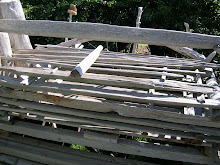
Play seems to depend on open unstructured time. I can’t say I am going to play for a set amount of time. Usually I just go out to play without a clear idea of where I am going or what I am going to do. I need some kind of extra time to fit the next piece into the puzzle. When I sat in the corner chair and my mother proposed activities, I rejected them. Then after a while I got up and left to go do something. Mom brought me to a threshold. Thinking about it now, the sound of her voice and her presence may have been what I needed.
Thinking isn’t what is going on in the interim; I’ll tentatively call it arranging.
Regard it as a stance of the inner mind that is sensitive to a myriad of possibilities and doesn’t arrive at a decision by making them, in the sense that we are trained to think.
(I don’t really know what I am going to do. This is some other way way of knowing; it is not exactly making a decision. When I am attuned to it, in my play (worrls) world, the flow of ideas and the impulses to complete actions happen like riding a wave. You get on one and then ride it and it takes you some where you ride the next.)
If you want to be open to what comes next, you have to get out of the way, and you have to stop proposing choices based on a list of likely scenarios. Maybe the improbable is about to occur. You can propose, and I do sometimes, but it doesn’t seem playful. Be sensitive to which activity opens a space. Then let wonder and some other sense of order take over. This can sound passive to an activity-minded individual, though I experience a swirl of activity unfolding. This part of the universe is anything but passive. We are the activity, even, if it is hours sorting old buttons.
With those buttons is it their age that catches my attention? Is it their history as a form of value? For me they evoke game tokens. Does everyone have an image of a button jar or box?

No comments:
Post a Comment